
7 minute read
Center Presents: Madeleine Peyroux “Careless Love” & Paula Cole: “This Fire”

THE PALLADIUM // THURSDAY, OCT. 20, 7:30 P.M. ET
Advertisement

Writer // Janelle Morrison • Photography // Courtesy of the Center for the Performing Arts
Two acclaimed artists are hitting the road together to celebrate classic albums. Madeleine Peyroux will perform songs from her 2004 release, “Careless Love,” reissued in a deluxe edition in 2021, which included the original song “Don’t Wait Too Long” alongside tunes by Bob Dylan, Leonard Cohen and other writers. Paula Cole will perform songs from her 1996 breakthrough, “This Fire,” which included the hits “I Don’t Want to Wait” and “Where Have All the Cowboys Gone?”
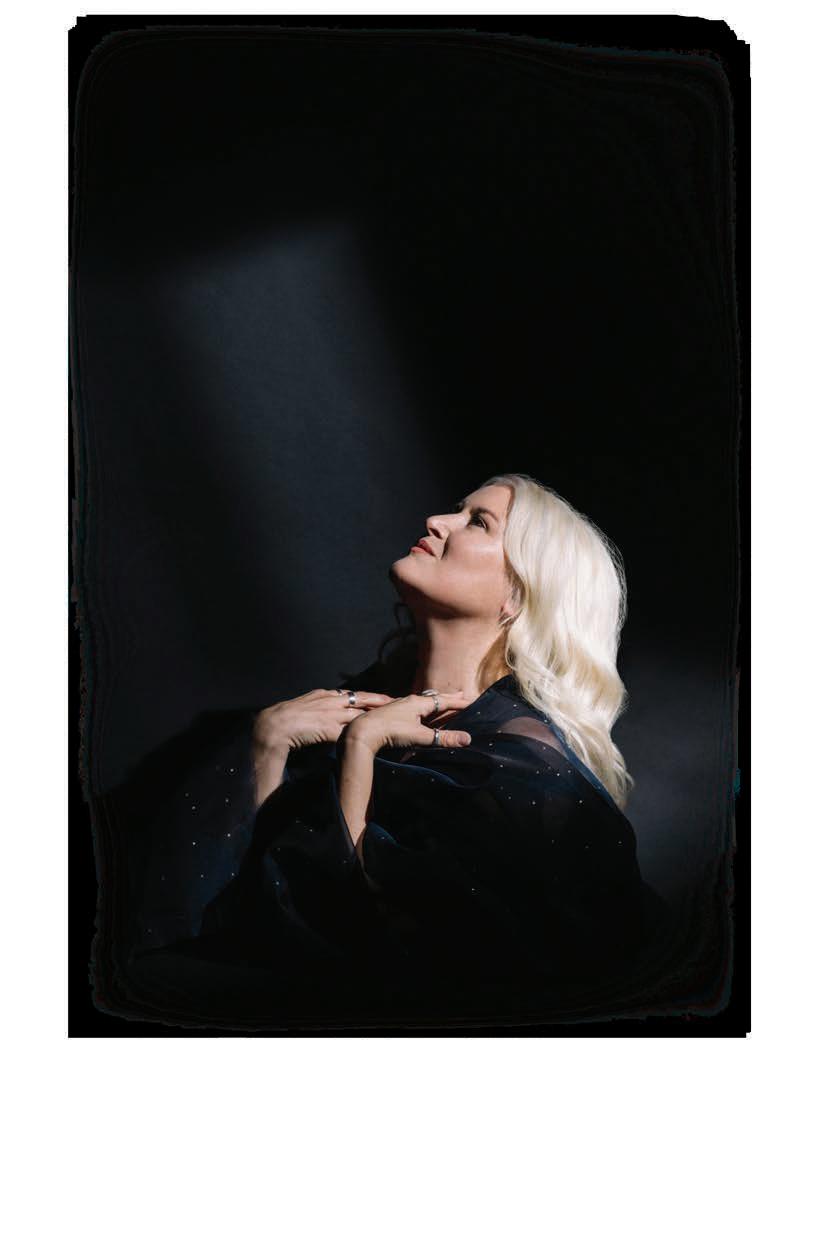
In 1996, Paula Cole released her self-produced second album “This Fire.” It was incendiary, a double-platinum smash. The first single, “Where Have All The Cowboys Gone?” catapulted to the Top 10. Her songwriting was loved by traditionalists, feminists, the LGBTQIA community, the whole world. Cole was nominated for 7 Grammy awards and was the first woman to be nominated as Producer of the Year with no collaborators. Her second single, the anthemic “I Don’t Want to Wait” dominated charts for a year and then lived again as the well-loved theme song for “Dawson’s Creek.”
Cole pushes boundaries and touches hearts and minds with her songwriting. Her live performances are movements of passion. She was a seminal figure in the formation of the first Lilith Fair and has performed the world over, from performing for the troops in the Persian Gulf to coffee houses in small towns across America to stadiums with Peter Gabriel to elegant theaters.
Now, 25 years later, Paula Cole will perform songs from her ground-breaking album, “This Fire,” in select cities. This is a rare opportunity to witness her historical work.
Paula Cole joins Madeleine Peyroux in the celebration of her breakthrough album, “Careless Love.” Two legends. Two legendary albums. One tour together.
FOR TICKETS, VISIT THECENTERPRESENTS.ORG.
Janelle Morrison: When “This Fire” debuted in 1996, I had just graduated high school, and the world was mine for the taking. Now, as a mother of an 18-year-old daughter, I view the world as a much more challenging place for her. You continue to be a voice for the marginalized, and I’m excited for the younger generations to experience your energy and music. In that spirit, what’s the genesis story behind you and Madeleine [Peyroux] collaborating on this tour?
Paula Cole: Thank you for that. I feel like you really understand what we’re doing. I’ve known Madeleine, and we have a lot of people in common between us. And now, we share a manager. I love touring with Madeleine. I’m difficult to place in a genre or with any label, and she’s more straight ahead, but we’re both lovers of lyrics and we’re both progressive women trying to make the world a better place. There’s a lot of mutual respect for our music and our commitment — we’re both middle-aged and still doing it.
So, it’s wonderful to share the road with someone who has that level of commitment to music. I watch her sets, and she watches mine. I love her music and her voice, and there’s a lot of dedication and passion for the music itself. It’s not a commodity for us — this is our life. We are dedicated, and we worship at the altar of music itself. When you’re out on the stage, you’re in the music — it’s a prayer. It’s a beautiful transcendence and celebration with the audience. And that’s what if feels like for both of us.
JM: We’re starting to see a return to the foundation of American music — the jazz standards — and even here in Indianapolis, we’re seeing a resurgence of popularity among younger people and younger artists. Please share with me your own personal evolution with this genre and the impact jazz has had throughout your career.
Cole: It is the Great American art form and is one of the only original things that America has contributed to culture. Jazz is largely an African American art form, really, and so we should be humbly aware of that — always. The standards are kind of subconsciously emblazoned in us, whether we hear them in the grocery store or in elevators. A lot of artists tend to acknowledge the masters at some point if they have a long career in music. Jazz is like a foundational subconscious material for all of us, musically.
I grew up in a highly musical family and played a multitude of instruments. When I was a small child, my father had a gig on weekends and played bass in a polka band. Even though some people laugh at that kind of music, it is folk music, and
he really had a serious groove on his instrument. He had great ears and great time. He would come home from a polka gig and would play Duke Ellington on the piano and the folk songs on the guitar and harmonica. It was a giant blend of music that I was exposed to, and it was all joyful. He got me singing and playing early, and I just didn’t care about labels moving forward.
I kind of blend it all together in my cauldron in my mind, in my heart and in the music that I make — it’s really diverse. Most of the musicians that play with me are deeply rooted in jazz. They’re the ones that can actually play my music, because it’s really complicated music. I fell in love with jazz and thought that I was going to be a jazz singer, but ultimately, I really needed my own lyrics and that’s what pivoted me from being a jazz singer to writing. I needed to write my own truths. In my early 20s, after a year or two of therapy that really helped me, I had a feminist realization and an individuated realization, and that’s what started me writing my own original music.
JM: Throughout the years, I have heard you say in past interviews that it was important for you to have control over your work in the production of it. Why is having 100% of your DNA in that part of the process so important for you? And how rare are female producers in the music industry?
Cole: The role of women producing in music and even just women being in the music business — which is a bastion of patriarchy — is reflective of women’s roles in society at large. You mentioned the Lilith Fairs in the ’90s, and I try to imagine those times in history when women came together to say, “Enough of this bullshit.” I think of the 1970s and the NOW march and the incredible women from the second wave of feminism … they provoked change and conjured the ERA which still has not passed.
So, here I am, just a girl going into the music business, and my father always treated me with respect and I was just an individual — a genderless soul in a female body — conceiving my ideas, and then I started to realize that people were patronizing me because I was a young woman. That was unacceptable to me. I had to be very stubborn, which is not necessarily a nice quality to be around, but I had to be tough, and hey, I’ve not always won my battles.
I didn’t win all of them, but in the realm of production, if I lose in the “deals,” at least I know that I’ve made good art. That is something I was not willing to compromise on, and I learned a lot from my first producer, Kevin Killen, who is amazing, and then it was time for me to branch out on my own. And that was radical at the time, and I didn’t even realize it was [radical] until I was nominated for a Grammy for it, and they told me after I was nominated that I was the first woman to be nominated as the sole producer. Then it dawned on me: that’s why I had gotten so much flack and why I experienced all those roadblocks. It had been done by Kate Bush — she was self-producing — and I thanked her when I won my Grammy. So, imagine all the women’s voices that have been kind of changed and marginalized by producers’ voices. And we have to keep fighting. It’s historical truth. Whether it’s for our rights through the ERA, production or record deals — it’s all the same. We can’t stop fighting, and we can’t stop believing. And we need to mindful of the women that came before us to role model that bravery.
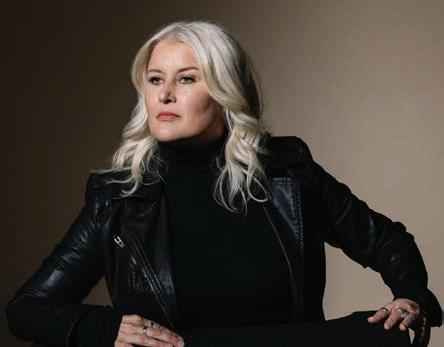
// LET’S TALK ABOUT GARAGE STORAGE
shelving & racks • cabinets • overhead storage
As Seen On
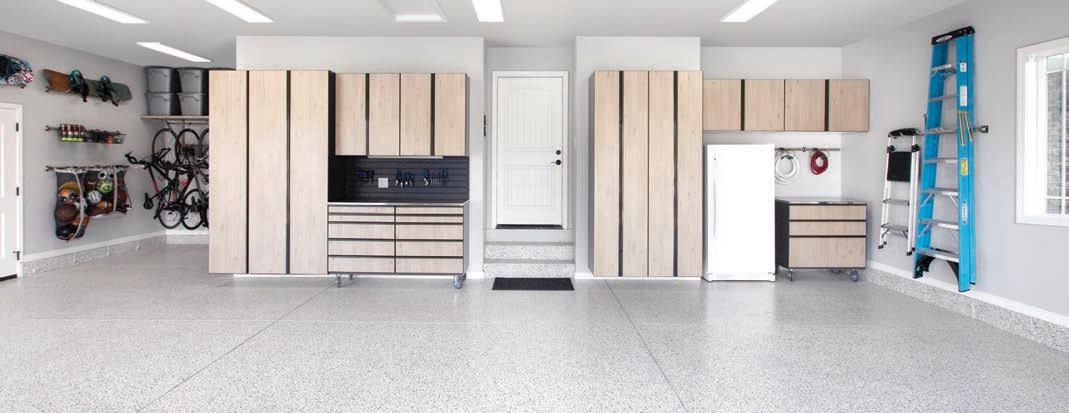
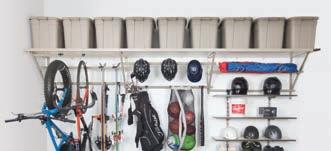

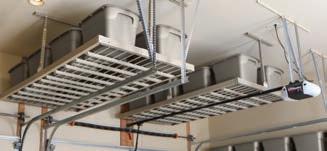
CALL FOR A FREE CONSULTATION & 3D RENDERING OF YOUR GARAGE | 317-300-4824 | www.theGarageTheory.com





